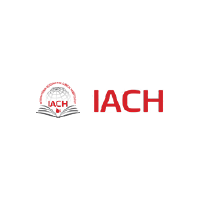IACH Journal Club- Allogeneic Hematopoietic Cell Transplantation in Advanced Systemic Mastocytosis: A retrospective analysis of the DRST and GREM registries
Healthcare7/2/2024 4:00 PM
Uncover insights from DRST/GREM registries on mastocytosis treatments. Join IACH's healthcare webinar. Learn more on WebinarCafe.
Healthcare Webinar Benefits
Summary: We identified 71 patients with AdvSM (aggressive SM [ASM], SM with an associated hematologic neoplasm [SM-AHN, e.g., acute myeloid leukemia, SM-AML], mast cell leukemia [MCL]) in two national registries (DRST/GREM) who received an allogeneic hematopoietic cell transplantation (alloHCT) performed in Germany from 1999–2021. Median overall survival (OS) of ASM/SM-AHN (n = 30, 45%), SM-AML (n = 28, 39%) and MCL ± AHN (n = 13, 19%) was 9.0, 3.3 and 0.9 years (P = 0.007). Improved median OS was associated with response of SM (17/41, 41%; HR 0.4 [0.2–0.9], P = 0.035) and/or of AHN (26/43, 60%, HR 0.3 [0.1–0.7], P = 0.004) prior to alloHCT. Adverse predictors for OS included absence of KIT D816V (10/61, 16%, HR 2.9 [1.2–6.5], P < 0.001) and a complex karyotype (9/60, 15%, HR 4.2 [1.8–10.0], P = 0.016). HLA-match, conditioning type or transplantation at centers reporting aboveaverage alloHCTs (≥7) had no impact on OS. Taking into account competing events at years 1, 3 and 5, relapse-related mortality and non-relapse mortality rate were 15%/23%, 20%/30% and 23%/35%, respectively. Irrespective of subtype, subsequent treatment response was achieved in 13/30 (43%) patients and was highest on midostaurin/avapritinib (7/9, 78%). We conclude that outcome of alloHCT in AdvSM is more affected by disease phenotype and treatment response prior to transplant than by transplant characteristics.
Speakers: Damaj Gandhi, Laurent Francesco and Onida Andreas Reiter.

